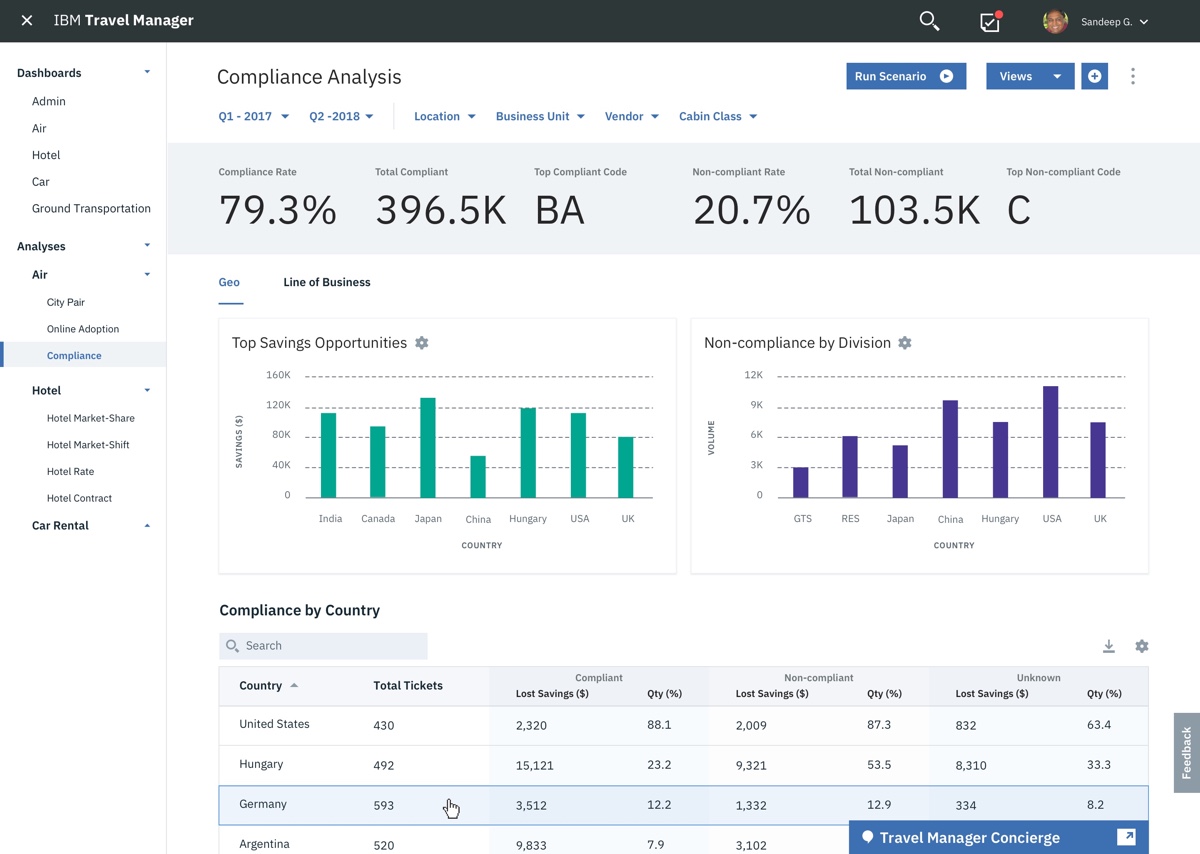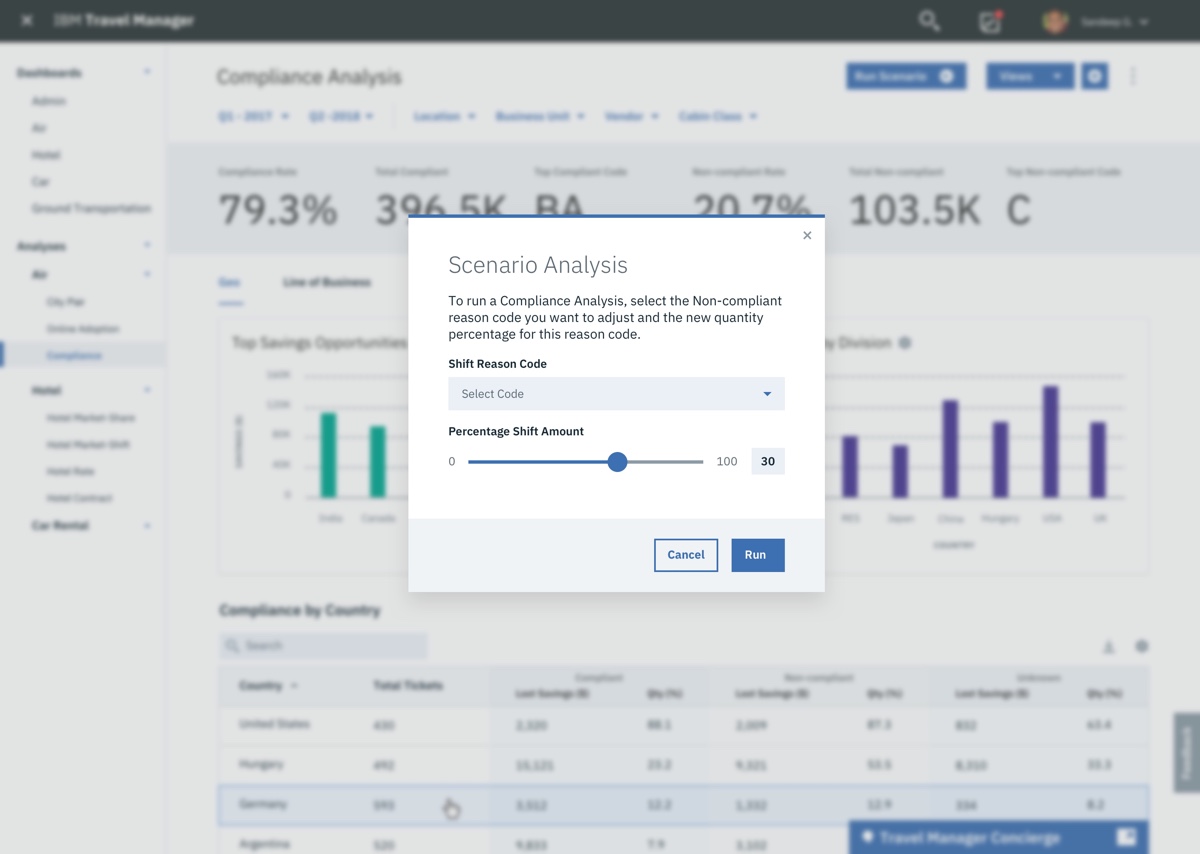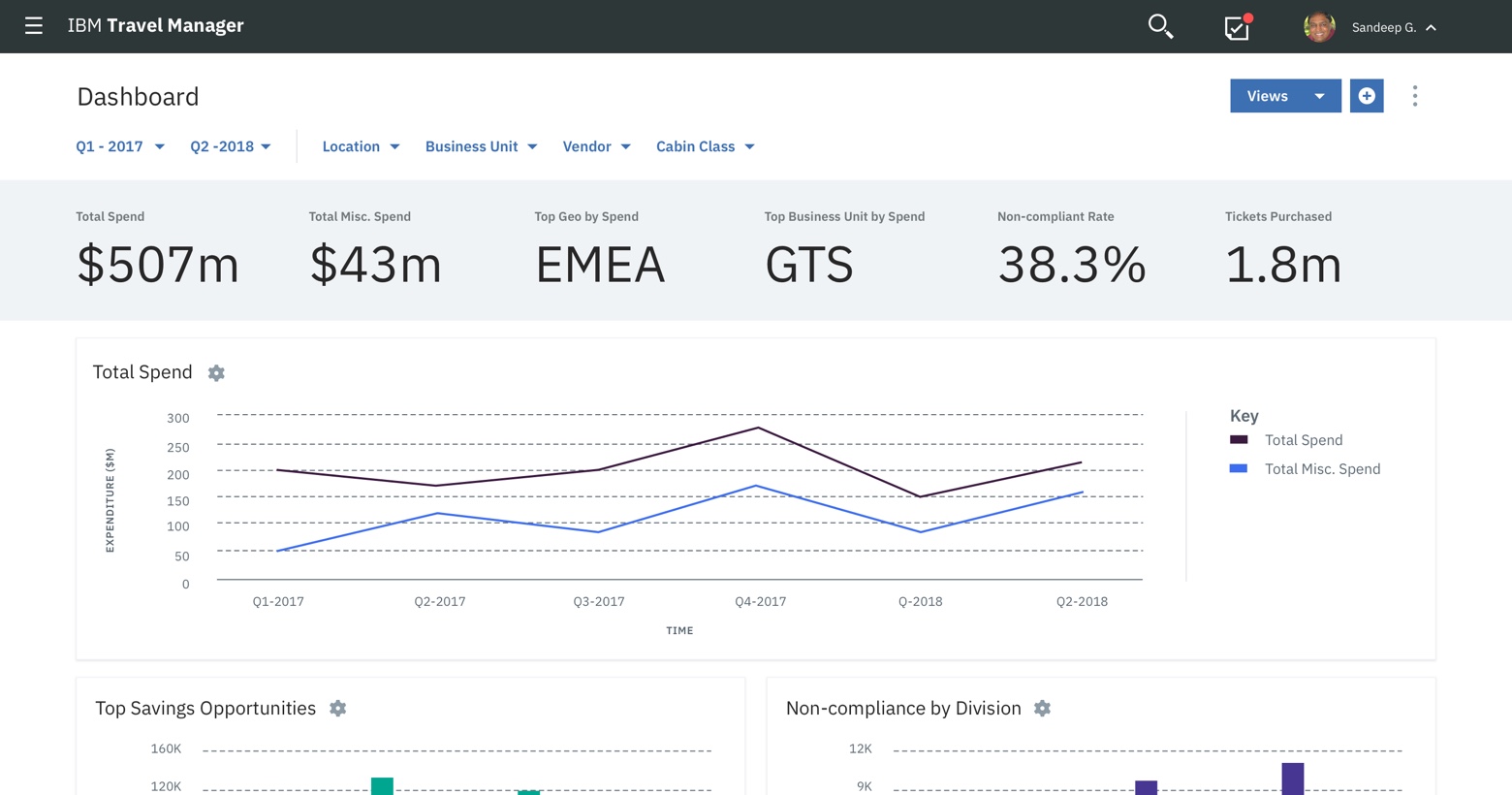Overview
IBM employees travel a lot for business. According to Business Travel News, IBM consistently ranks within the top 5 companies for travel spend the past few years. All of those dollars, vendor relationships and savings opportunities need to be tracked. IBM procurement faced a laborious process where travel managers needed to compile booking records from many disparate sources in order to actually understand how tickets were purchased and used. To sum it up, this process was inefficient and slow. Travel managers felt frustrated of the time it took to understand records, and at the same time, irritated that they could only negotiate with vendors for better deals after-the-fact. Ultimately, they felt that the existing process prevented them from saving the company money and helping employees get access to better benefits from airlines, hotels and car rental companies.
Project Role
- UX/UI Design Lead
- User Research
Process
Using Design Thinking, my team and I worked with the Global Procurement managers to really understand the variety of data sources they needed to do their jobs. This was a rare enterprise scenario where the stakeholders were the end users of the product, which made it simpler to align business goals and user needs.
After tallying up and prioritizing pain points, we aligned them to user goals. This process enabled our team to envision capabilities that our users hadn’t thought of. These innovations grounded themselves in questions like “What if travel managers could run what-if analyses to try and negotiate better deals?” and “How can a travel manager be proactively notified about excessive spend?”. These questions helped us craft big outcomes that we could plan scenarios around to help us meet our users’ goals.
Challenges
With complex data comes complex challenges. Aside from the technical hurdles of cleaning and processing data sets, we had to give users visibility into where data was coming from and how it presented itself. This challenge served up the need for a robust notification section, allowing travel managers to see when data was updated and from what source. With all of the modeling tools available in the Travel Manager Solution, data set changes would alter a what-if scenario analysis. By notifying managers about data changes, this would allow for better estimates for better negotiations on supplier benefits from airlines, hotel chains and more.
An overarching challenge of this project was aligning UX goals with technical limitations. Due to the robustness of the data set, it was very difficult to asynchronously load data sets while users engaged in the experience. This called for a tight alignment with the development team to ensure that the interaction design provided ample feedback letting users know when data was processing and when it was ultimately available.


Outcome
IBM Travel Manager became the first of its kind travel manager solution for procurement professionals. The experience was launched in 2017 and continues to be developed today with added customizations and custom analyses. The experience allows travel managers to not only visualize and view data of travel spend, but also enables them with the ability to model and predict deals that employees can take advantage of. From a procurement standpoint, the experience allows managers to monitor compliance, making sure that the company efficiently makes use of its travel budgets. Travel Manager also has robust collaboration features, allowing users to share data visualizations, export data sets and generate PDFs of custom analyses from detailed filter sets.
